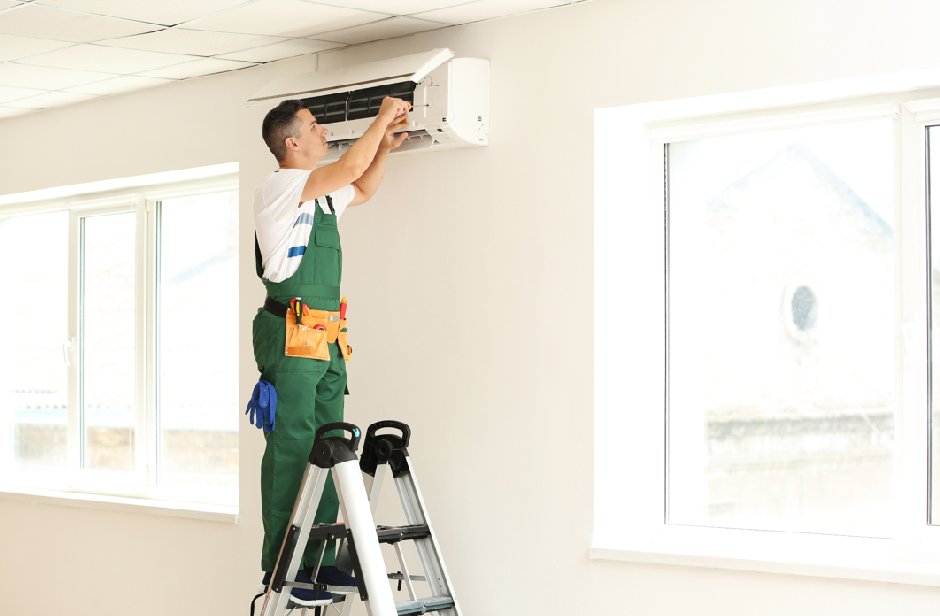Installing a new air conditioning system is a significant investment that can greatly enhance comfort and indoor air quality in your home. However, before embarking on an air conditioning installation project, it’s essential to carefully consider several factors to ensure a successful and efficient outcome. This blog will discuss seven crucial factors to consider before undertaking an air conditioning installation project.
Assess Your Cooling Needs
The first step in planning an air conditioning installation project is to assess your cooling needs. Consider factors such as the size of your home, the number of occupants, and climate conditions in your area. Determine whether you need a central air conditioning system to cool the entire house or ductless mini-split systems for specific zones. Understanding your cooling requirements will help you select the right type and size of air conditioning system for your home.
Choose the Right Type of Air Conditioning System
There are several types of air conditioning systems available, each with its advantages and limitations. Central air conditioning systems use ductwork to distribute cool air throughout the home, while ductless mini-split systems provide targeted cooling for individual rooms or zones. Additionally, window units and portable air conditioners offer temporary cooling solutions for smaller spaces. Consider your home’s layout, cooling needs, and budget to determine the most suitable system type for your requirements.
Consider Energy Efficiency
Energy efficiency is a crucial factor to consider when selecting an air conditioning system. Look for systems with high SEER (Seasonal Energy Efficiency Ratio) ratings, which indicate greater efficiency and lower energy consumption. Energy-efficient systems not only help reduce utility bills but also minimize environmental impact. Additionally, consider investing in ENERGY STAR® certified systems, which meet strict energy efficiency criteria set by the U.S. Environmental Protection Agency.
Evaluate Installation Requirements
Assess your home’s existing infrastructure and layout to determine the installation requirements for your air conditioning system. Central air conditioning systems require ductwork for air distribution, while ductless mini-split systems require mounting units on walls or ceilings. Evaluate available space, electrical requirements, and potential modifications to accommodate the new system. Hire a qualified HVAC contractor to assess your home and provide recommendations for installation.
Plan for Air Duct Cleaning
Before installing a new air conditioning system, it’s crucial to ensure that your air ducts are clean and debris-free. Dirty air ducts can restrict airflow, reduce system efficiency, and compromise indoor air quality. Plan for air duct cleaning as part of your installation project to remove accumulated dust, allergens, and contaminants from the ductwork. Hire a professional duct cleaning service to thoroughly clean and sanitize your air ducts, ensuring optimal performance and indoor air quality.
Research Qualified HVAC Contractors
Choosing the right HVAC contractor is essential for the success of your air conditioning installation project. Research local contractors with experience and expertise in installing your chosen system. Check their credentials, licenses, and certifications to meet industry standards and regulatory requirements. Additionally, read reviews and testimonials from past customers to gauge their reputation and customer satisfaction.
Plan for Proper Maintenance
Regular maintenance is key to ensuring the longevity and efficiency of your air conditioning system. Plan for routine maintenance tasks such as filter replacements, coil cleaning, and system inspections to keep your AC running smoothly. Consider purchasing a maintenance plan or service agreement with your HVAC contractor to ensure timely servicing and priority scheduling for repairs or emergencies.
Undertaking an air conditioning installation project requires careful consideration of several factors, including cooling needs, system type, energy efficiency, installation requirements, air duct cleaning, contractor selection, and maintenance planning. You can ensure a successful and efficient installation process by assessing your requirements, researching available options, and partnering with qualified professionals. Invest in the right air conditioning system and installation services to enjoy cool and comfortable indoor temperatures for years.









